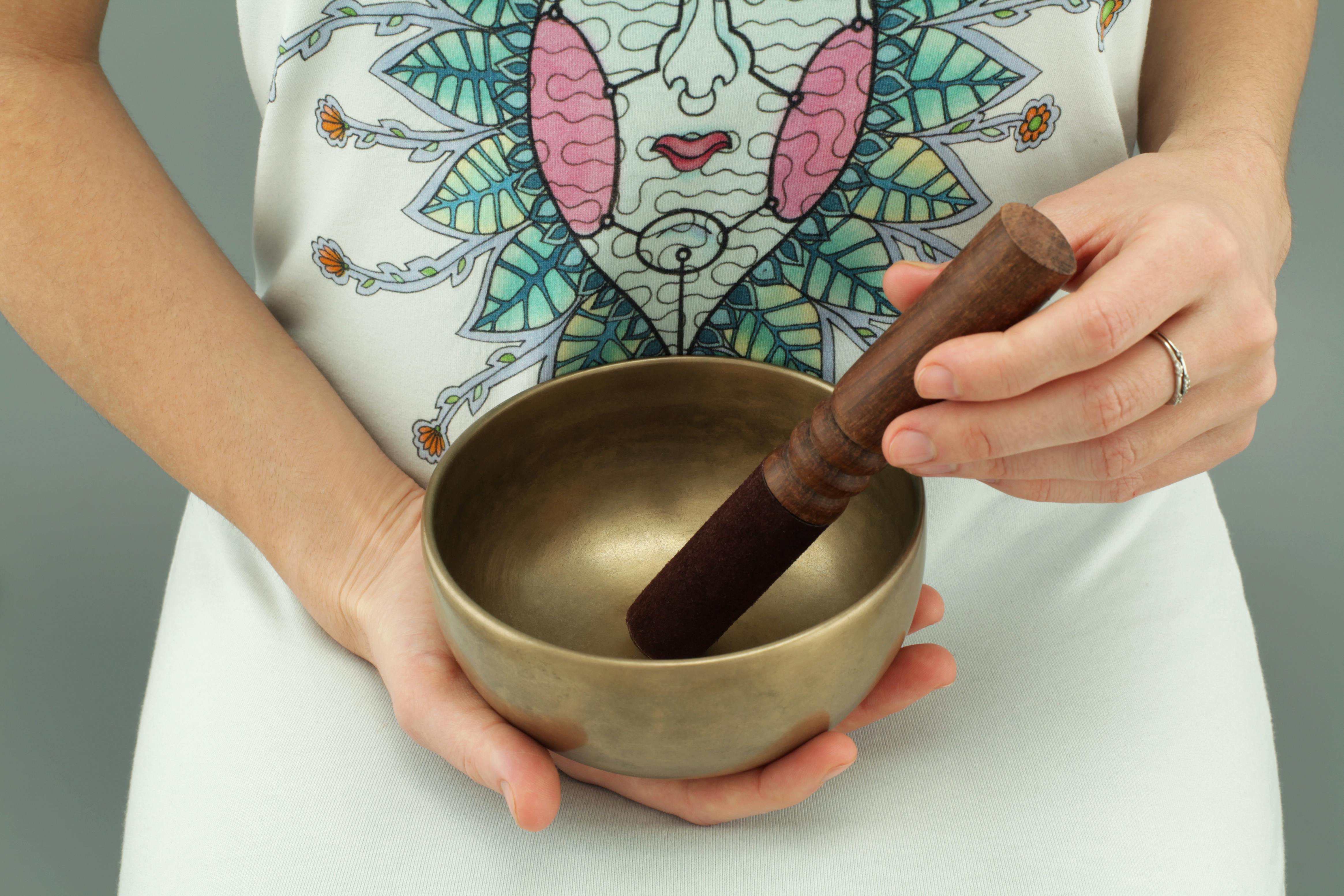
I. Introduction
In today’s fast-paced and stressful society, anxiety has become a prevalent issue that affects many individuals. It is crucial to address this issue and find effective ways to soothe anxiety. One powerful method that has gained recognition in recent years is music therapy. Music therapy harnesses the healing power of music to calm the mind and promote emotional well-being. This article aims to explore the effectiveness of music therapy in soothing anxiety.
II. Understanding Anxiety
Anxiety is a common mental health condition characterized by excessive worry, fear, and restlessness. It can manifest in various ways, such as panic attacks, social anxiety, or generalized anxiety disorder. Anxiety disorders affect a significant portion of society, with statistics showing that around 18% of adults in the United States suffer from some form of anxiety disorder. The impact of anxiety on mental and physical health is profound, leading to increased stress levels, disrupted sleep patterns, and even physical ailments like headaches and digestive issues.
III. The Role of Music in Human Emotions

Music has a profound impact on human emotions. It has the ability to evoke specific feelings and create a deep emotional connection with listeners. Research has shown that certain musical elements, such as rhythm, melody, and harmony, can elicit specific emotional responses. For example, fast-paced and upbeat music tends to evoke feelings of happiness and excitement, while slow and melodic music can induce a sense of calm and relaxation. The psychological effects of music have been extensively studied, with findings indicating that music can reduce stress, elevate mood, and promote overall well-being.
IV. Introduction to Music Therapy
Music therapy is a specialized form of therapy that utilizes music to address physical, emotional, cognitive, and social needs of individuals. It is based on the principles that music can be a powerful tool for self-expression, communication, and healing. The history of music therapy dates back to ancient civilizations, but it has gained recognition as a formal therapeutic approach in the past century. A music therapist plays a crucial role in the therapeutic process, using various techniques and interventions to help individuals achieve their therapeutic goals.

V. Music Therapy Techniques for Anxiety
Music therapy offers a range of techniques that can effectively alleviate anxiety. Active music-making techniques involve the individual actively engaging with the music, such as improvisation and self-expression, drumming and rhythmic exercises, and singing and vocalization. These techniques provide a sense of control and empowerment, allowing individuals to express their emotions in a safe and non-threatening way.
Passive music-listening techniques involve the individual passively listening to music while engaging in relaxation exercises or guided imagery. This can help individuals achieve a state of deep relaxation and reduce anxiety. Music-assisted meditation is another technique that utilizes calming music to enhance the meditation experience, promoting a sense of tranquility and inner peace. Additionally, classical music has been found to have particularly calming effects, as its complex compositions and soothing melodies have a soothing effect on the nervous system.

VI. Scientific Evidence and Research Findings
Numerous studies have been conducted to examine the effectiveness of music therapy for anxiety. These studies have consistently shown positive outcomes, with music therapy being effective in reducing anxiety symptoms and improving overall well-being. Neurological research has also provided insights into the impact of music on anxiety, revealing that music has the ability to activate brain regions associated with emotional processing and regulation. Comparisons with other therapeutic interventions have shown that music therapy can be equally, if not more, effective in reducing anxiety.
VII. Case Studies and Personal Experiences

Personal stories of individuals who have benefited from music therapy provide compelling evidence of its effectiveness. These stories highlight the transformative power of music in soothing anxiety and improving emotional well-being. Success stories from music therapy programs and clinics further demonstrate the positive impact of music therapy, showcasing how it has helped individuals overcome their anxiety and regain control over their lives. Testimonials from music therapists and their clients serve as further evidence of the profound and lasting effects of music therapy.
VIII. Incorporating Music Therapy into Daily Life
Music therapy techniques can be easily integrated into daily life to provide ongoing anxiety relief. Tips for incorporating music therapy at home include creating a calm and relaxing environment, using personalized playlists tailored to individual preferences, and exploring different music genres and their effects on anxiety. By incorporating music therapy techniques into daily routines, individuals can experience the benefits of music therapy on a regular basis, promoting overall emotional well-being.

IX. Conclusion
In conclusion, music therapy is a powerful tool for soothing anxiety and promoting emotional well-being. It has been shown to be effective in reducing anxiety symptoms and improving overall mental health. By harnessing the healing power of music, individuals can find relief from anxiety and experience a sense of calm and tranquility. It is important to explore music therapy as a complementary treatment for anxiety and to recognize the transformative power of music in enhancing emotional well-being.
FAQ: Common Questions and Answers
1. What is the difference between music therapy and simply listening to music?
Music therapy involves the intentional use of music by a trained therapist to address specific therapeutic goals. It utilizes various techniques and interventions tailored to the individual’s needs. Simply listening to music may provide temporary relief or enjoyment, but music therapy goes beyond passive listening by actively engaging individuals in the therapeutic process.
2. Can music therapy be effective for all types of anxiety disorders?
Yes, music therapy can be effective for various types of anxiety disorders, including generalized anxiety disorder, social anxiety, and panic disorder. The tailored techniques and interventions used in music therapy can address the specific needs and symptoms associated with different anxiety disorders.
3. Are there any potential risks or side effects of music therapy?
Music therapy is generally considered safe and does not have any significant risks or side effects. However, individuals with specific sensitivities to certain types of music or sound may need to discuss their concerns with a music therapist. It is important to work with a qualified professional to ensure that the therapy is appropriate and beneficial.
4. How long does it take to see results from music therapy for anxiety?
The length of time it takes to see results from music therapy for anxiety can vary depending on individual factors and the severity of the anxiety. Some individuals may experience immediate relief after a music therapy session, while others may require multiple sessions to notice significant improvements. Consistency and regular practice of music therapy techniques can enhance the effectiveness and speed up the results.
5. Can music therapy be used as a standalone treatment for anxiety?
Music therapy can be used as a standalone treatment for anxiety, especially for mild to moderate cases. However, in more severe cases or when additional support is needed, it is often recommended to combine music therapy with other therapeutic interventions, such as psychotherapy or medication. A comprehensive treatment approach that addresses the underlying causes and symptoms of anxiety is typically the most effective.








